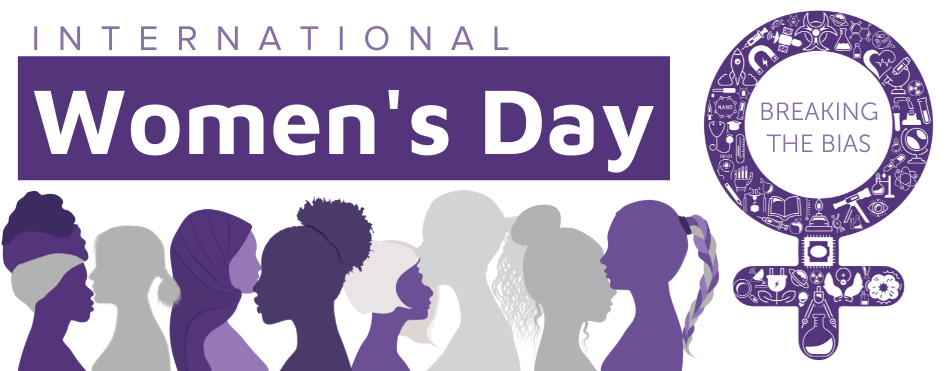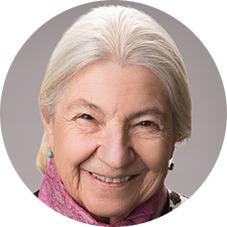
AZoM spoke to Dr. Ruzena Bajcsy, who at 89 years old is Professor Emeritus at UC Berkely and the University of Pennsylvania after leading an impressive and broad-spanning career in STEM. We asked her to share her thoughts on her career in research and teaching for International Women's Day 2022.
Please can you introduce yourself and provide a brief overview of some of the roles you have occupied during your scientific career?
 I am Ruzena Bajcsy, professor emeritus from two universities: UC Berkeley and the University of Pennsylvania. In the past, I was a Professor of Electrical Engineering and Computer Sciences and NEC chair holder at UC Berkeley until 2021, and Director of the Center for Information Technology Research in the Interest of Society (CITRIS).
I am Ruzena Bajcsy, professor emeritus from two universities: UC Berkeley and the University of Pennsylvania. In the past, I was a Professor of Electrical Engineering and Computer Sciences and NEC chair holder at UC Berkeley until 2021, and Director of the Center for Information Technology Research in the Interest of Society (CITRIS).
How did you start out in science, and what inspired you to continue pursuing a profession in STEM?
My father Felix Kucera was a civil engineer, building and maintaining roads and bridges in Slovakia. I admired him deeply and wanted to be like him. Luckily I was gifted in Math, so it was easy for me!
You have led an incredible career, which included acting as the founding director of the Center for Information Technology Research in the Interest of Society (CITRIS). Could you describe what the goal of this center is and what it was like to be involved so closely with its development?
I always believed (like my father) that technology and science should serve people. So as technology and science progressed, I looked for ways how it can help people. CITRIS gave me the opportunity to promote this idea: engineering, computer science, and technology in service to society.
You have held various professorships at some of America’s most prestigious universities. Did you enjoy teaching, and did you have a favorite department?
I taught at both the University of Pennsylvania for 30 years and at UC Berkeley for 20 years. I am at my best when I interact with students in the laboratory in small groups. It gives me pleasure when a student, after some struggle, says: AHA.
The impressive scope of your research spans areas including electrical engineering, medical imaging, robotics, AI, computational biology, and automation. Which of your many research focuses engaged you the most?
You call my research span impressive - thank you! I always have been interested in understanding the behavior and performance of technology in principle (looking for foundational generalizable answers), yet the testing and inspiration came from observations in applications such as biology or robotics.
It is a pleasure to see your scientific knowledge applied to what ben Franklin called 'useful knowledge'.
How were you able to balance teaching alongside your prestigious research career?
This is HARD! They are both full-time jobs! I was lucky to have a husband who was supportive.
I raised my children to be very independent so I was able to focus on my work, and I am lucky I inherited a good constitution so I could work long days!
The scientific fields that you have contributed to have progressed significantly in the past decades. What was it like to see technology advance so quickly, and what excites you the most about where it is heading?
You are right. Today, science and technology are moving very fast and, for some older people, too fast! It is hard to keep up, but it is also exciting to me! This world belongs to the next generation, and I see a lot of good things happening.
73 Questions with Ruzena Bajcsy
Video Credit: Carolyn Matl/Youtube.com
As a woman, do you believe that you experienced any prejudice or extra hurdles in your professional career as a result of your gender?
I saw the prejudices, but I believed that good work will be eventually recognized, and those obstacles just made me work harder.
Do you have any advice for young women or girls who wish to pursue a career in STEM fields?
It is an exciting time in the science world! There are almost infinite opportunities. But it will not be easy - be prepared!
Since becoming a Professor Emerita, what has your research focus been? Are you still conducting research now?
One advantage of being an Emeritus is that I am not in the competitive ring. I have the luxury to read, learn new subjects and think about what will be in the future.
I participate in workshops and conferences where I present my vision for the future. This is my way to share my experience and use it toward projects.
Finally, it is a hard question, but can you think of your favorite memory of being a scientist?
I have many! When you receive an award, either being elected to some prestigious society or rewarded by some organization, you always reflect on how did I get here? You must remember all those who helped you on your way.
About Dr. Ruzena Bajcsy
Ruzena Bajcsy received her Master’s and Ph.D. degrees in electrical engineering from Slovak Technical University, Bratislava, Slovak Republic, in 1957 and 1967, respectively, and a Ph.D. in computer science from Stanford University, Stanford, CA, in 1972. She was Professor of Electrical Engineering and Computer Sciences and NEC chair holder at the University of California, Berkeley, until 2021 and Director Emeritus of the Center for Information Technology Research in the Interest of Science (CITRIS). Since 2021 she is an emeritus professor at UC Berkeley but also in the engineering school at UPENN, Philadelphia. Prior to joining Berkeley, she was a professor of the Computer Science and information department at the University of Pennsylvania, Philadelphia.
There, she founded the GRASP (General Robotics and Active Perception) laboratory in 1979, which is flourishing now. In 1999 she was appointed to be head of the Computer and Information Science and Engineering Directorate at the National Science Foundation. In 2001, after she finished her stay at NSF, she retired from the University of Pennsylvania and joined the faculty at the University of California, Berkeley.
Dr. Bajcsy is a member of the National Academy of Engineering and the National Academy of Medicine (NAM) as well as a Fellow of the Association for Computing Machinery (ACM), a fellow of IEEE and the American Association for Artificial Intelligence, and a fellow of AAAS.
In 2001, she received the ACM/Association for the Advancement of Artificial Intelligence Allen Newell Award. Since 2008 she is a member of the American Academy of Arts and Sciences. She is the recipient of the Benjamin Franklin Medal for Computer and Cognitive Sciences (2009) and the IEEE Robotics and Automation Award (2013) for her contributions in the field of robotics and automation. She is also a member of the American Philosophical Society in Philadelphia.
She received the 2016 NAE Simon Ramo Founders Award for her life achievements.
Banner Credits: Melitas & M.Style / Shutterstock
Disclaimer: The views expressed here are those of the interviewee and do not necessarily represent the views of AZoM.com Limited (T/A) AZoNetwork, the owner and operator of this website. This disclaimer forms part of the Terms and Conditions of use of this website.